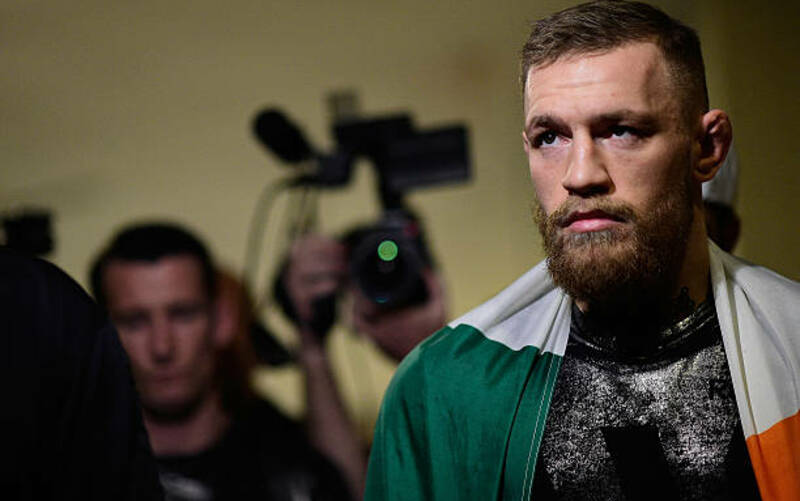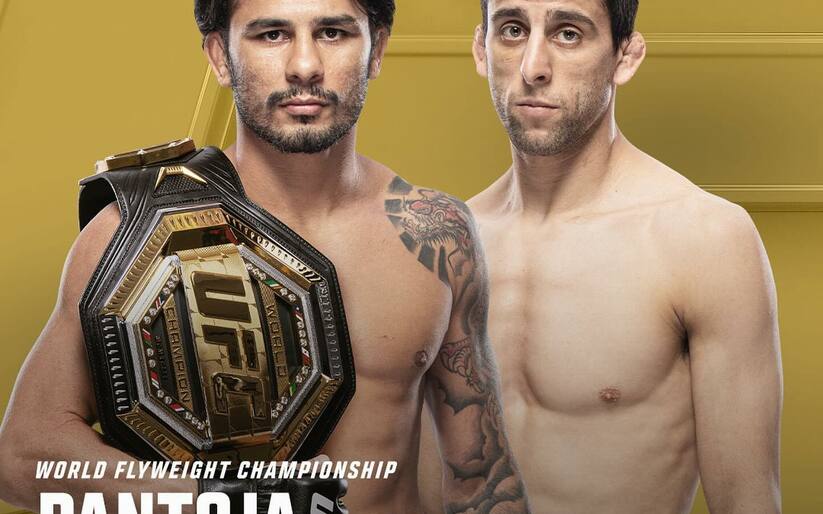By all accounts, the UFC lightweight division has come a long way over the years. Once considered the black sheep of the UFC’s ever-evolving divisions, box office draws were hard to come by until a certain BJ Penn put the “smaller” fighters on the map. It is now arguably the most star-studded collection of fighters within the entire promotion.
Home to inimitable megastar Conor McGregor, long-established fan favorites such as Donald Cerrone, and burgeoning legends like current champion Khabib Nurmagomedov, one would assume that UFC would do everything in its power to preserve the sanctity of the division – so why are they seemingly doing all that they can to sabotage it?
The UFC Lightweight Division
Simpler Times
Frankie Edgar ushered in the “modern era” at lightweight by overthrowing BJ Penn at UFC 112 in Abu Dhabi. The nature of the victory was somewhat inauspicious, as was his title reign, but it represented a necessary, seamless transition into new era with the torch being passed from one fighting champion to another.
Frankie Edgar would go on to defend his championship three times, and despite never attaining mainstream, box-office status, garnered respect and admiration of fighters and fans alike. Edgar’s reign was defined by his two bouts with Gray Maynard and the successful avenging of a contentious draw with Maynard – the only controversy of his 687-day reign. Amidst Edgar’s reign the UFC procured the WEC and its considerable abundance of talent, marking a major influx of talent and a list of new challengers to the throne.
Benson Henderson, one of the incoming stalwarts of the now-defunct WEC, eventually took the torch from Edgar and, again, contributed to the annals of lightweight history with three successful title defenses.
Like Edgar, Henderson never became a pay-per-view draw, and in fact, only fought once as champion on a numbered PPV. Nevertheless, the division moved with the times and saw three separate challengers get their opportunity, with Bendo securing three successful defenses during his 552-day title reign. Though his reign is not looked back on with a great deal of fanfare Henderson was a fighting champion and a consistent performer.
The McGregor Era
The lightweight division hit its first minor speed-bump during Anthony Pettis‘ reign. Pettis, after impressively ousting Henderson to take his place atop the lightweight throne, took 15 months to eventually defend his championship against Gilbert Melendez.
Sadly for Pettis, his reign failed to live up to the considerable hype and ended after just one successful defense. The one-time face of the Wheaties box was not to take lightweight to new heights nor oversee the anticipated reign of dominance. He eventually lost the championship to Rafael dos Anjos.
Just as soon as dos Anjos usurped Pettis to take what, in retrospect, was a hot-potato of a championship belt, the shadow of rising featherweight star Conor McGregor ominously emerged.
Despite this, dos Anjos’ maiden voyage as champion was a destructive and highly impressive stoppage win over Donald Cerrone. Despite the major win, all attention would turn to a prospective bout with then-newly minted featherweight champion Conor McGregor. It wasn’t long before a fight was booked, with dos Anjos and McGregor scheduled to collide in what was supposed to be the biggest fight in UFC lightweight history at UFC 196 in March 2016.
Despite never fighting at lightweight in the UFC, McGregor was in line for a title shot – perhaps the self-destruction of the division can be traced back to this decision. Less than two weeks from fight night, the Brazilian champion suffered a foot injury which would ultimately keep him out of the cage for four months. Rather than wait for the champion to heal, McGregor would go on to fight Nate Diaz and become embroiled in an unforeseen, highly lucrative series at welterweight, thus delaying the featherweight champion’s ascension to lightweight.
In keeping with a developing pattern of inconsistency at lightweight, dos Anjos eventually fought and lost his championship to Eddie Alvarez. Though the landscape of the division was changing dramatically around it, Alvarez vs. RDA would represent the end of an era. With Conor McGregor avenging his loss to Nate Diaz and returning his attention to the lightweight championship, the era of super-fights was well and truly upon us.
The Superfight Era
It was almost impossible to question to the wisdom of handing Conor McGregor – fresh off of a record-breaking, money-making clash with Nate Diaz – a lightweight championship fight with Eddie Alvarez. It was certainly impossible to question it after the fact, with McGregor winning his second belt in the most stunning way possible. As McGregor sat atop the cage with gold belts draped over each shoulder, the MMA sphere was in no doubt that something special had just happened, but the future of the lightweight division was about to put in huge jeopardy.
McGregor’s first title defense could hardly be much easier to book, on paper. Tony Ferguson, just one week prior to McGregor’s coronation, defeated former champion dos Anjos and extended his winning streak to nine. In Ferguson’s last five wins he had earned a staggering six post-fight bonuses, underlining the sheer momentum that El Cucuy was carrying with him.
A more deserving challenger simply did not exist, although Khabib Nurmagomedov was also surging with an 8-0 UFC record within an overall 24-0 record as a professional, and was at one point even slated to fight Alvarez before being unceremoniously booted to make room for McGregor. What counted against Khabib was his injury history, and despite fighting on the undercard of UFC 205, a recent two-year lay-off ensured that his momentum was not as strong as Tony’s.
Conor McGregor vs Tony Ferguson appeared the obvious fight to make. The only fight to make, in fact. An unprecedented sequence of events was to follow, however. “MayMac”. “The Money Fight”. “The Biggest Fight in Combat Sports History”. Otherwise known as Floyd Mayweather Jr. vs. Conor McGregor in a professional boxing bout. Despite Tony Ferguson’s legendary winning run, McGregor’s head had been turned by the prospect of making the biggest payday of any MMA fighter before him. Despite the detrimental impact McGregor’s run would ultimately have on “his” lightweight division, it is hard to begrudge any fighter the opportunity to make the type of money that was on offer in his fight with Mayweather. For this, collectively, the UFC and its fans put principles to one side and conceded that the champion would be absent for a period of time. Enter the first incarnation of the interim lightweight championship.
Mayweather vs. McGregor eventually went down on August 26, 2017 – nine months after McGregor won the lightweight championship – with McGregor succumbing to an unsurprising knockout loss. Prior to this UFC was seemingly intent on keeping its marquee division moving as Tony Ferguson vs. Khabib Nurmagomedov was booked for the interim championship. A necessary decision, though decidedly unfair on both fighters who were rather blatantly deserving of a crack at the real thing. As fate would have it, the fight would fail to materialize – for a third time – due to illness to Khabib. Ferguson would ultimately be re-booked in an interim championship bout against young upstart Kevin Lee at UFC 216 in October 2017.
Ferguson appeared to set the lightweight division back on the right tracks when he submitted Kevin Lee, setting up a future fight with Conor McGregor in which both belts would be unified. In truth, nobody knew when McGregor would actually be back in action and it began to become all-too-clear that there was no timescale on his return following his knockout loss to Mayweather. The decision was eventually made in January, 13 months into a reign which ultimately yielded no title defenses, that McGregor was to be stripped of his title. The UFC duly booked Tony Ferguson vs. Khabib Nurmagomedov for the fourth time, only this time it was for the undisputed lightweight championship. McGregor’s reign had become infamous for its inactivity, and the UFC knew it. The time had come for the division to move forward once again – with or without its biggest star.
In what has since become a pillar of MMA folklore, Khabib vs. Tony failed to materialize as planned at UFC 223 in April 2018. Tony Ferguson’s famously innocuous knee injury led to Al Iaquinta stepping in on 24 hours notice – but not before Max Holloway bizarrely threw his name into the mix on less than a weeks notice.
Mercifully for the UFC featherweight division, the New York State Athletic Commission put and end to any extreme weight-cutting that Holloway had in mind. Khabib Nurmagomedov eventually defeated Al Iaquinta to become the UFC’s undisputed lightweight champ. Order had been restored. A fighting champion held the belt once again. Surely the past 17 months of chaos had been resolved in one night.
The Present Era
On the surface, the UFC’s lightweight conundrum was to resolve itself at UFC 229. Conor McGregor would challenge Khabib Nurmagomedov for his former championship. In the co-main event, Tony Ferguson would defend his right to be next in line against Anthony Pettis. Based on the results of the two fights – Khabib submitting McGregor, Tony finishing Pettis in spectacular fashion – the next steps of the lightweight division were clear.
All signs pointed to a fifth attempt at booking Khabib vs. Ferguson. What transpired on that night would, in the space of approximately 30 seconds AFTER the fight, set the division back yet again and into uncharted territory. Khabib would become embroiled and unwittingly incite a mass brawl involving cornermen from both fighters. No one was hurt, and no physical damage was done, but the proverbial black-eye on the sport would not go unpunished. Only recently were punishments finally delivered, with Khabib banned for nine months (six should he choose to carry out an anti-bullying PSA) and Conor banned for six months. To make matters that much worse for the division, Khabib publicly elected to sit out the length of his teammates bans – a full 12 months.
The Fallout of UFC 229
UFC 229 was supposed to be the night in which the division restored order to itself and wins and losses finally began to matter again. It was, in fact, the beginning of an impossibly chaotic situation which lives on to this day.
Swift action was needed following the stern sanctions handed down by the Nevada State Athletic Commission and the decisions made by Nurmagomedov thereafter. The UFC, once again, had a champion who wouldn’t be active for at least 12 months. Thankfully, UFC still had Tony Ferguson. The nine-fight winning streak that was overlooked in November of 2016 was now an eleven fight winning streak. Whatever happened next – be it interim or undisputed – Tony Ferguson would surely be one half of the next championship fight. Two questions remained: who would Tony fight, and which version of the championship would be contested?
UFC’s options appeared simple – either institute yet another interim championship or strip Khabib and put the championship up for grabs. As for Tony’s opponent? The choice couldn’t be easier. Dustin Poirier was riding a streak of three main-event finishes against top-level competition, two of which were former champions. Poirier made no bones about his desire to fight for the belt. Be it interim of undisputed, the fight to make was Tony Ferguson vs. Dustin Poirier.
To snub Tony with another interim fight given his unparalleled streak of wins would be criminally unfair, but with UFC appearing afraid of the consequences of stripping Khabib (or more specifically, his all-powerful manager Ali Abdelaziz), it appeared the only option.
The only man who could possibly stand in its way was Conor McGregor, though a potent combination of suspension and personal matters appeared to allay fears that he could walk into another title fight. McGregor appeared tantalized by a potential fight with Donald Cerrone. The division, though traumatized by recent disorder, had as close to a logical way forward as possible for all parties involved.
The Reality
I woke to the news this weekend that UFC has booked Dustin Poirier vs. featherweight champion Max Holloway – not Tony Ferguson – for the interim lightweight championship at UFC 236. Those in North America would have received the news the night before. I am grateful to have received a good nights sleep before taking in this news because, if not, my head may well have exploded upon reading.
As there always tends to be these days, because nothing is simple anymore with the UFC, there is a backstory to how the booking of this fight was reached. Though the news is still developing, it is understood that UFC’s first choice was to book Tony Ferguson vs. Max Holloway for the interim championship. This, too, makes my head hurt.
Tony Ferguson is understood to have turned down the fight with Holloway, presumably because he also failed to see any logic whatsoever in fighting someone with an 0-0 record at lightweight in the UFC. If El Cucuy is a little salty and standoffish with the UFC there is a litany of reasons why he may feel this way.
As I understand it, both Dustin Poirier and Tony Ferguson are healthy and ready to fight. Max Holloway, meanwhile, is in the midst of an increasingly fabled run as featherweight champion. Holloway, of course, had previously been booked to challenge Khabib when Tony initially fell to injury, so it shouldn’t come as much surprise that he continues to desire a second championship. Fighters are entitled to dream and harbor ambitions of fighting in different weight classes. It is the responsibility of the UFC, however, to regulate this and ensure that order is kept in the respective divisions. Or at least it was their responsibility. I don’t even know anymore.
Are the UFC match-makers terminally ill and only concerned with the next fight in front of them? If so, I can understand their desire to book the most unexpected, shocking fights possible and show complete disregard and downright contempt to the likes of Tony Ferguson. If they are in their role for the long haul, though, then they should simply do their job better. Their job has not been made easy by the indiscretions of Conor McGregor and Khabib Nurmagomedov but there has always been a way to fix things and restore order – UFC has simply chosen not to use it.
The winner of Dustin Poirier vs. Max Holloway will, if the purpose of the interim championship is to be believed, go on and fight Khabib Nurmagomedov later this year when he returns to action. I have no faith that this will actually. To do so would be incredibly naive given the recent history of the UFC lightweight division. In the meantime Tony Ferguson is left without an opponent, with rumours abound that Conor McGregor may be next when his suspension expires. Should Ferguson dispatch of his eventual opponent and take his winning streak to an embarrassingly impressive 12, it is only just that he fight for an actual honest-to-god championship belt in his next outing.
Due to UFC’s booking of Poirier and Holloway, Tony Ferguson will instead stay exactly where he is now – and where he has been since November 2016 – perhaps the best lightweight fighter in the UFC, but still without the opportunity to prove it.
Oh, and spare a thought for the likes of Al Iaquinta, Edson Barboza, Justin Gaethje and any other lightweight with designs on eventually fighting for the championship. A twelve fight winning streak is no longer enough for a title shot, and frankly, I’m no longer sure what is.
Main Photo
Embed from Getty Images



